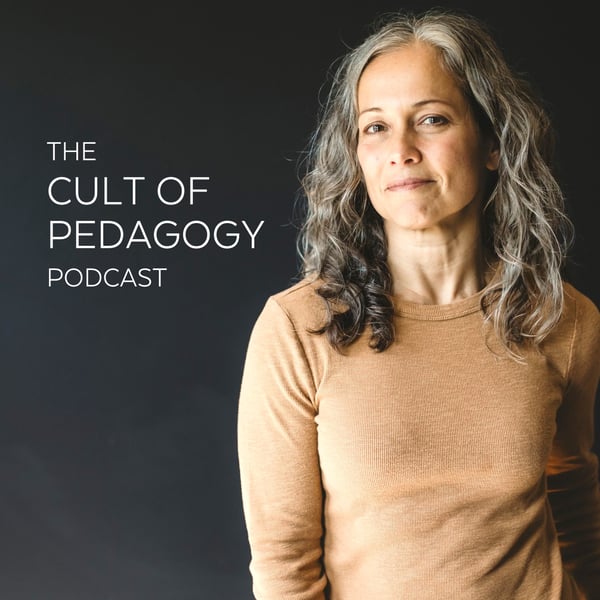261: How and Why to Use Concept Maps
The Cult of Pedagogy Podcast
Jennifer Gonzalez
4.8 • 2.4K Ratings
🗓️ 12 October 2025
⏱️ 52 minutes
🧾️ Download transcript
Summary
Concept maps are graphic organizers or visual representations of knowledge. They're simple, they're low-tech, and they're incredibly powerful tools for learning. In this episode, cognitive scientist Dr. Kripa Sundar explains why concept maps are so impactful, then shares a handful of specific practices that will help you make the best use of them. Also joining us is Dr. Pooja Agarwal, editor of the book Smart Teaching Stronger Learning, which includes a chapter on concept mapping along with nine other high-impact teaching strategies.
______________________________________________________________
Thanks to Solution Tree and Listenwise for sponsoring this episode. For links to the book and a full transcript of this episode, visit cultofpedagogy.com/concept-maps.
To learn more about the Teacher's Guide to Tech, visit teachersguidetotech.com.
Transcript
Click on a timestamp to play from that location
| 0:00.0 | This is Jennifer Gonzalez welcoming you to episode 261 of the Cult of Pedagogy podcast. |
| 0:06.0 | In this episode, we will explore how and why to use concept maps. |
| 0:24.2 | What is a concept map? |
| 0:27.3 | If you're new to this term, let me give you a quick definition. |
| 0:33.0 | A concept map is a graphic organizer or visual representation of knowledge. |
| 0:41.7 | You may have heard other terms used to describe these, like mind maps or spider maps, but they all operate in basically the same way. |
| 0:51.9 | Key concepts are put into nodes, which look like boxes or bubbles with words inside them, and they are linked together with lines or arrows to show their relationship. |
| 0:55.2 | Pretty simple, straightforward thing. |
| 0:58.6 | Yes, they don't require any complicated technology. |
| 1:00.6 | They can be created pretty quickly. |
| 1:03.6 | And teaching someone how to make one doesn't take much time. |
| 1:07.4 | And yet, they can be incredibly powerful tools for learning. |
| 1:10.1 | That's what we'll talk about in this episode. My guest is Dr. Crippa Sunder, |
| 1:13.1 | who you may remember from episode 177, where she taught us all about how to use and understand |
| 1:19.1 | academic research. Dr. Sunder is a cognitive scientist who specializes in research on |
| 1:25.3 | concept mapping, among other things. She's one of the contributors to the |
| 1:29.8 | book, Smart Teaching, Stronger Learning, Practical Tips from Ten Cognitive Scientists. The book's editor, |
| 1:37.0 | Dr. Pooja Agarwal, invited 10 cognitive scientists to share their own actionable evidence-based |
| 1:42.6 | classroom practices. In episode 250, two of these authors |
| 1:47.2 | shared some excellent retrieval practice strategies. If you haven't heard that one, definitely put it |
| 1:52.2 | in your cue to listen next. Today, Dr. Agarwal joins us again to talk a little bit about the book, |
| 1:58.8 | and then we'll pull from another chapter and focus on |
... |
Please login to see the full transcript.
Disclaimer: The podcast and artwork embedded on this page are from Jennifer Gonzalez, and are the property of its owner and not affiliated with or endorsed by Tapesearch.
Generated transcripts are the property of Jennifer Gonzalez and are distributed freely under the Fair Use doctrine. Transcripts generated by Tapesearch are not guaranteed to be accurate.
Copyright © Tapesearch 2026.

